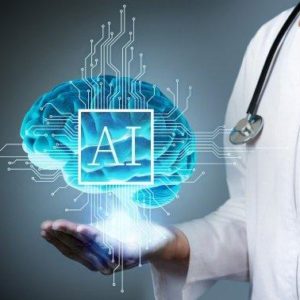Data has become an increasingly vital part of modern business, and it is no surprise that companies are constantly looking for ways to leverage it to their advantage. How businesses use data, from big data and analytics to artificial intelligence and machine learning, is continuously evolving.
This article will discuss data trends based on evolving technology in data engineering, data science, and data literacy and how they are expected to impact businesses in 2023 & beyond.
Anticipating trends can help businesses of all shapes & sizes navigate uncertainty and stay ahead of the competition.

Key Trends in Data Engineering
The role of data engineering in helping startups and growing companies navigate potential challenges, such as a downturn in markets, in the post-COVID environment is huge. There has been significant upheaval in various industries in 2022, including layoffs and departures, and a reset may come soon.
It is especially important for startups and growing companies to find ways to use data engineering to mitigate potential challenges in this challenging environment.
- Trend 1: Growing popularity of Hybrid Clouds
The hybrid cloud, which combines public and private cloud services, has recently gained popularity. However, it can have security and reliability concerns.
To address these issues, organizations are using Single Source of Truth (SSOT) systems, which provide a single source of data across the entire organization, prevent data silos, and reduce the cost of data management. SSOTs can simplify data management and minimize complications caused by pre-existing chaos.
- Trend 2: The rise of Analytics Engineers.
While we are familiar with the role of Data Engineers responsible for designing, building, maintaining, and testing the data pipelines that enable organizations to store, process, and analyze large datasets.
Analytics Engineers, in contrast, focus more on developing & deploying analytics and reporting systems. They are responsible for building and maintaining the platforms and tools that enable organizations to extract insights and value from their data.
While these roles may overlap in some ways, they have different focuses and responsibilities. Data engineers tend to focus more on the technical aspects of data management, while analytics engineers focus on using data to drive business decisions.
Key Trends in Data Science
To make successful data-driven decisions and effectively govern data, startups, and large organizations need to understand the latest trends and challenges in data science. Some key trends that businesses should be aware of include the following:
- Trend 1: Advent of Open AI Chatbots

The key trend in Data Science is the emergence of Open AI chatbots, which are being hailed as the next big thing. ChatGPT is one such example of an AI chatbot, a software program that communicates with users via text or voice messages to complete tasks or provide information.
These chatbots are powered by artificial intelligence (AI) and natural language processing (NLP) technologies, which allow them to understand and respond to user requests in a way that simulates human conversation.
It is looking close to reality that by the end of 2023, more intelligent AI chatbots will be available that can book appointments, book a table at a restaurant, and handle many more tasks.
But does this mean many businesses will get an AI chatbot as their primary workforce?
It is quite certain that AI can only partially replace the human workforce shortly. While AI and automation technologies have the potential to improve efficiency and productivity in many industries, they are not capable of replacing the full range of skills, knowledge, and creativity that human workers bring to the table.
- Trend 2: The rise of Feature Storage
One trend in data science that has gained traction in recent years is the concept of feature storage, which refers to storing data in a way optimized for machine learning (ML) and artificial intelligence (AI) algorithms.
Traditionally, data has been stored in relational databases designed to store and manage data in a structured format. However, these databases are only sometimes the most efficient or effective way to store data for ML and AI purposes. On the other hand, feature storage systems are specifically designed to store and manage data optimally for use by ML and AI algorithms.
There are several benefits to using feature storage systems, including faster access to data, better scalability, and improved performance of ML and AI models. As such, feature storage systems are expected to continue to grow in popularity among data scientists and other professionals working in AI and ML.
Key Trends in Data Literacy
In 2023 and beyond, becoming data-literate will be defined as an organization’s ability to leverage data to create business value. Leaders will raise expectations from simply showing training completions to aligning relevant business metrics that measure the effectiveness of their data literacy initiative.
Business leaders will continue prioritizing data literacy and making the necessary investments to stay ahead in the marketplace. But, expect to see two important changes in corporate data literacy initiatives:
- Trend 1: Citizen Analysts – Need of the hour
We discussed this several years ago, and organizations will start seeing the need for Citizen Analysts across functions. This refers to employees who take on data-driven decision-making responsibilities even if they do not have a formal background in data science or analytics.
What will a Citizen Analyst do?
They will play a valuable role within their function and on cross-functional teams, bringing a deep understanding of the business and a unique perspective to data analysis projects. They will identify areas for improvement and help prioritize initiatives based on potential business impact.
They become key influencers in accelerating the adoption of a data-driven mindset among their staff and peers.
To support the growth of citizen analysts, organizations may need to invest in employee development in two specific areas. First, hone their analytical skills through training and practice. Second, develop their ability through hands-on projects and mentoring where they apply an end-to-end analytics process, using technical skills, business acumen, and professional skills to achieve a business goal.
- Trend 2: The age of Bespoke Assessments!
In the past, most data literacy initiatives would start with a general baseline exam to see what people know and then direct them to online courses to close knowledge gaps. Training completions measured progress but could not show a change in data-driven mindset or decision-making.
In 2023, expect to see a change in how data literacy assessments are used to drive training priorities, investment decisions, and business impact. Customized assessments will become the norm. They will be used to kick off a data literacy initiative or to take existing ones to the next level.
Assessments will be unique to each business, aligned to business priorities and outcomes, and go deeper into function and roles. They will cover more than technical knowledge.
They will assess areas like critical thinking, decision-making, and the effectiveness of your analytics process.
Aryng recently launched a DL Custom Assessment Toolkit designed with business impact in mind.
Conclusion
In conclusion, the world of data is constantly evolving, and 2023 will likely bring several significant trends and changes to the business landscape. From AI chatbots to the rise of Analytics engineers & Citizen Analysts to the arrival of bespoke Data Literacy assessments, the data landscape is evolving and providing businesses with opportunities to innovate and accelerate their growth in 2023.
As a business owner or decision-maker, staying current on these trends and understanding how they may affect your organization is essential. By embracing new technologies and strategies and investing in data literacy and analytics, you can position your business for success in the rapidly changing world of data.

Add a Comment